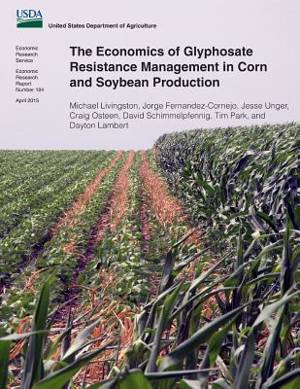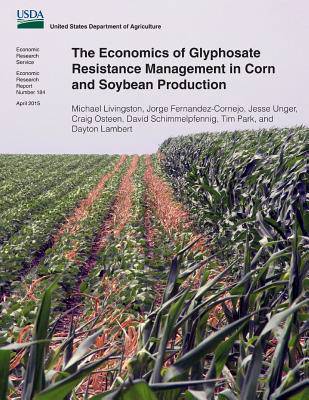
Door een staking bij bpost kan je online bestelling op dit moment iets langer onderweg zijn dan voorzien. Dringend iets nodig? Onze winkels ontvangen jou met open armen!
- Afhalen na 1 uur in een winkel met voorraad
- Gratis thuislevering in België vanaf € 30
- Ruim aanbod met 7 miljoen producten
Door een staking bij bpost kan je online bestelling op dit moment iets langer onderweg zijn dan voorzien. Dringend iets nodig? Onze winkels ontvangen jou met open armen!
- Afhalen na 1 uur in een winkel met voorraad
- Gratis thuislevering in België vanaf € 30
- Ruim aanbod met 7 miljoen producten
Zoeken
The Economics of Glyphosate Resistance Management in Corn and Soybean Production
Jorge Fernandez-Cornejo, Jesse Unger, Craig Osteen
Paperback | Engels
€ 34,95
+ 69 punten
Omschrijving
Glyphosate, known by many trade names, including Roundup, is a highly effective herbicide. Widespread glyphosate use for corn and soybean has led to glyphosate resistance, which is now documented in 14 weed species affecting U.S. cropland, and recent surveys suggest that acreage with glyphosate-resistant (GR) weeds is expanding. Data from USDA's Agricultural Resource Management Survey (ARMS), along with the Benchmark Study (conducted independently by plant scientists), are used to address several issues raised by the spread of GR weeds. Choices made by growers that could help manage glyphosate resistance include using glyphosate during fewer years, combining it with one or more alternative herbicides, and, most importantly, not applying glyphosate during consecutive growing seasons. As a result, managing glyphosate resistance is more cost effective than ignoring it, and after about 2 years, the cumulative impact of the returns received is higher when managing instead of ignoring resistance.
Specificaties
Betrokkenen
- Auteur(s):
- Uitgeverij:
Inhoud
- Aantal bladzijden:
- 52
- Taal:
- Engels
Eigenschappen
- Productcode (EAN):
- 9781512272161
- Verschijningsdatum:
- 21/05/2015
- Uitvoering:
- Paperback
- Formaat:
- Trade paperback (VS)
- Afmetingen:
- 216 mm x 279 mm
- Gewicht:
- 190 g

Alleen bij Standaard Boekhandel
+ 69 punten op je klantenkaart van Standaard Boekhandel
Beoordelingen
We publiceren alleen reviews die voldoen aan de voorwaarden voor reviews. Bekijk onze voorwaarden voor reviews.











